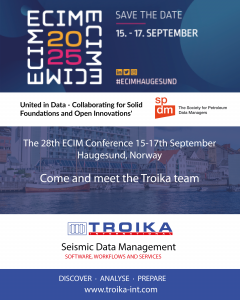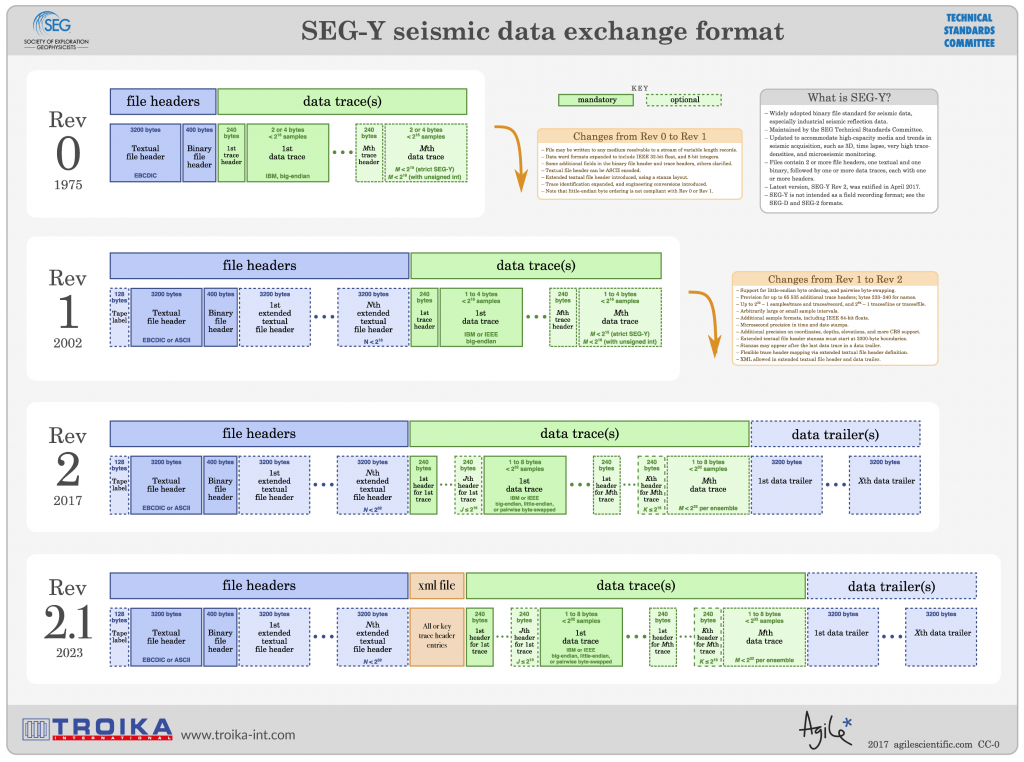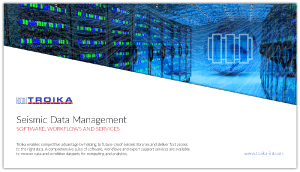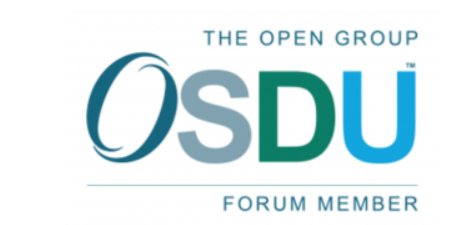About Troika
Troika is a world-leading provider of seismic data management software, consultancy, and services. Troika develops unique solutions to retrieve and repair legacy formats, merge and check navigation data, and visualise quality control attributes. Our Magma data recovery software has become an industry standard front-end for conditioning big datasets including field, pre- and post-stack seismic for in-house or cloud computing and analytics. Solutions are also provided for remote robotic tape management and verifying datasets for workstation use. The latest developments include new tools to maximise the efficiency and speed of automated trawling and analysis of the legibility, contents and quality of online seismic libraries.
Troika enables competitive advantage by helping to future-proof seismic data repositories and deliver fast access to the right data.
The Team
Troika has a unique team of expert seismic data management professionals located primarily in London, Houston and Aberdeen. Its software developers include several highly experienced “industry gurus” supported by dynamic young computer engineers. Training and consultancy services benefit from decades of experience in data transcription, processing, and management from around the world. The whole Troika team is focused on providing data management techniques that maximise the value of your seismic assets while ensuring conformance to the latest industry standards. Troika also prides itself as being one of a handful of organisations in the seismic industry to have a majority female participation in ownership.
The Founders
Managing Director
Jill Lewis
Jill has extensive experience in providing solutions to the many challenges that can arise when preparing and future-proofing seismic information for data libraries, computer processing and workstation analysis. Jill has worked in seismic data management since 1981 when she joined DPTS. In 1985 Jill and Bob Firth co-founded Tape Technology where she helped facilitate the establishment of a global network of specialist seismic transcription and data management centres. Jill continued to support these operations after the company was absorbed by PECC until 1994 when she co-founded Troika International. Since then, under her management, Troika has grown from strength to strength through innovative technology and a focus on meeting or exceeding customer expectations. Jill is well known throughout the industry for her passion in championing the essential value of data management for verifying the contents of data libraries; quality analysis and repair; and ensuring data is fit for purpose when required by geoscientists and engineers. For more than twenty years Jill has also been highly active on the SEG Technical Standards Committee, which she has chaired and promoted in presentations at conferences around the globe. She has been instrumental in ratifying several industry standard formats, including SEG-Y_r1, SEG-Y_r2, SEG-D_r2.1. SEG-D_r3, and SEG-D_r3.1.
Technical Director
Bob Firth
Bob is an acknowledged world expert in seismic tape formats and the technical aspects of transcription and data management. He started his career in 1973 with GSI, where he helped to develop its field tape handling software. In 1977 Bob became a founding member of DPTS, where he developed transcription systems capable of handling a wide range of legacy media and data formats. He later became Technical Director for the Tape Technology group, which in 1991 was absorbed into PECC Limited, where he was the company’s Principal Software Engineer. Bob was a co-founder of Troika International when it was established in 1994, and subsequently designed the Magma next-generation transcription and remastering system while also providing consultancy services to a wide range of companies. In addition, he has been a key author on several SEG standards documents including SEG-Y rev 1 and SEG-D rev 2.
News

ECIM 2025 – Haugesund
15th – 17th September – Haugesund, Norway. Troika are delighted to be attending this fantastic event in Norway again this year. Save the date, and pop along to meet the Troika….

IMAGE 2025 – Houston
25th to 28th August – Houston, Texas. Pop along to booth 629 and speak to the team to see how our software enables competitive advantage by helping to future-proof seismic data repositories and deliver fast…

SEG IMAGE 2024 – Houston
26th – 29th August – Houston, USA. George R. Brown Convention Center. Join the ultimate geoscience experience for learning best practices, discovering solutions, and developing new perspectives and strategies to plan for what’s next. Please…
Resources
Troika is a leading participant in the SEG Technical Standards Committee and has been highly active in promoting best seismic data management practices through articles and presentations in upstream oilfield publications and international conferences. Troika also provides the chosen front end plug-in for major seismic data management and processing systems including Halliburton’s SeisSpace ProMax software family.
Upcoming Events
| August 26, 2024 | SEG Image 2024
26th – 29th August 2024, Houston, Texas. IMAGE ’24 highlights traditional petroleum geoscience topics while uncovering the latest energy market trends, science, and opportunities. |
| September 16, 2024 | ECIM 2024
16th – 18th September 2024 Details coming soon. |
SEG-Y Seismic Data Exchange Format
A useful chart which shows the differences between SEG-Y rev0, rev1, rev2, and rev2.1. Published in Agile‘s blog post by Matt Hall, SEGY-Y Rev 2 again: Little-Endian is Legal!
For a printable copy – SEG-Y Revision Format Chart PDF.

iEnergy

Halliburton’s iEnergy® provides an easily accessible eLearning centre with E&P tools and resources, looks at industry standards and trends and encourages partner and customer relationships.
Troika are pleased to be an iEnergy Community Partner.
SEG Standards
Troika Managing Director Jill Lewis and Vice President Victor Ancira are past Chairs of the Committee and led a team that prepared the specifications for SEG-Y revision 2.0. The Committee serves as a forum for the discussion of geophysical developments in which standards for acquisition and processing of geophysical data need to be identified or improved. When data problems of a sufficient magnitude to warrant action by SEG are identified, an appropriate subcommittee is appointed to develop a set of standards and make a recommendation to the Executive Committee concerning their adoption.
Learn more about SEG Technical Standards
SEG-Y REV 2.0
SEG-Y has been the default standard for storing and exchanging processed seismic data since it was published in 1975. A revision in 2002 extended the standard to handle 3D acquisition and high-capacity media. Since then, extensive developments in data acquisition and processing capabilities such as time-lapse (4D), multicable, multicomponent and seabed data have continued to evolve, requiring a further revision of the format to ensure accurate capture of the data and associated metadata to future-proof valuable information on tape or disk.
In addition to previous capabilities, SEG-Y revision 2.0 provides for up to 65,535 additional 240-byte trace headers for metadata, more than 4 billion samples per trace, variable sample intervals and trillions of traces per line or ensemble. The revised format also supports additional data sample formats including IEEE double precision (64 bit), little-endian and pair-wise byte swapping to improve I/O performance, microsecond accuracy in time and date stamps and additional precision on coordinates, depths and elevations.
SEG-Y_rev2 March 2017
Format and Tape Capabilities
The Magma software allows the user to determine and subsequently read all standard SEG recognised field and non-field seismic data formats. These include all current versions of the SEGD field format as well as legacy multiplexed field formats SEGA, SEGB, and SEGC. All versions of SEGY can be read, including the latest SEGY Rev 2.
There are additional modules available that allow the user to read non-standard sequential and non-sequential tape formats. These can be specifically customised by the user to achieve this.
Legacy media can also be handled. These include:
- 9-track tape
- 21-track tape
- IBM 3480/3490/3590 cartridge
- DLT
- LTO
- Exabyte
- DAT 4mm
Seismic data can also be copied from tape to disk as an exact copy as found on the input media using an internal encapsulation. The data can then be investigated, prior to reading and subsequent output.
VeriTape

Troika are sole agents in the seismic industry for the VeriTape® reader, a premier tool for diagnosing the health of Linear Tape Open (LTO) and 3592 tape cartridges.
Click here for further information.


